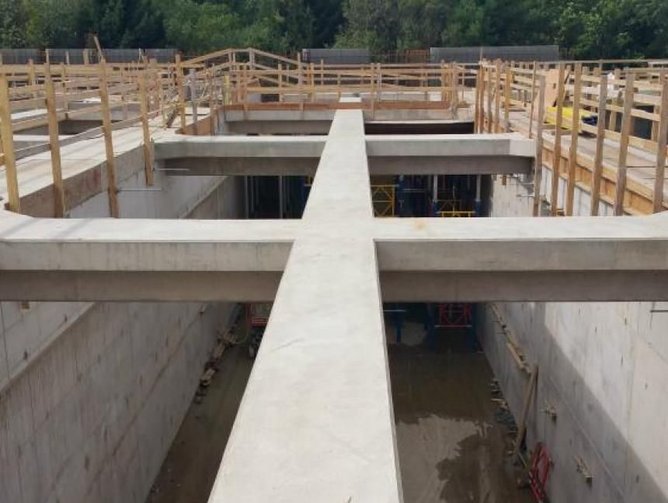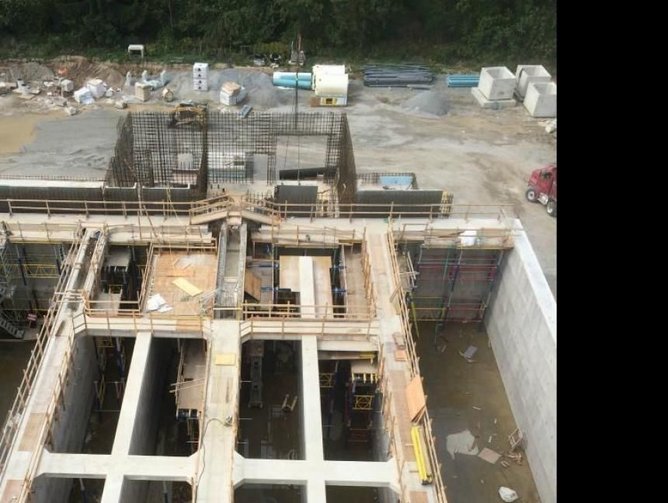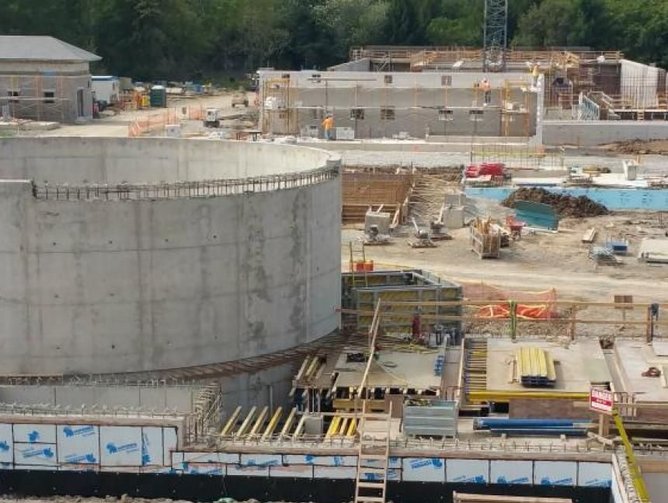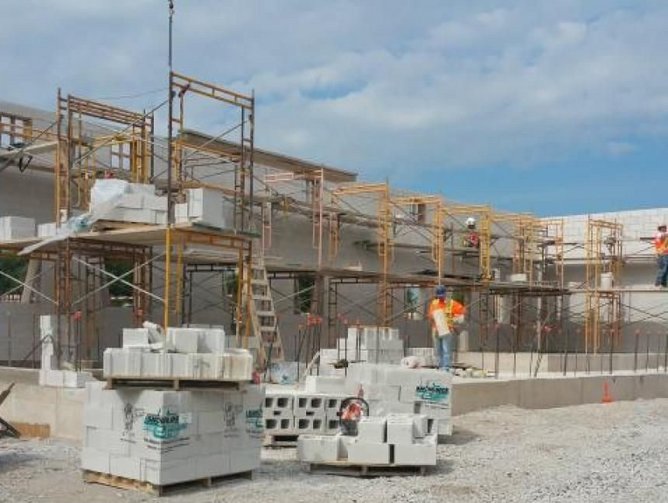Growth is essential for any region to thrive. But by mid-2005, growth surrounding the municipality of Niagara-on-the-Lake had started to slow down. One key factor was a wastewater treatment plant that had begun to reach full capacity, thus reducing its ability to effectively and sustainably serve Niagara-on-the-Lake’s growing population.
For the community to continue to thrive, the Niagara Region saw that change was imperative. Now that change is underway, with the construction of a new wastewater treatment plant for Niagara-on-the-Lake. This $43.2 million infrastructure project, under construction 800 meters west of the existing facility, promises to increase treatment capacity by 40 per cent, reduce problematic noise and odours, and go further to preserve the environment of Niagara and Lake Ontario. With the support of the Canadian and Ontario governments, the new facility pledges to provide a better level of service for the residents of Niagara.
New innovations for a better tomorrow
As issues of climate change and the need for clean usable water continue to push to the forefront, environmental standards have become increasingly more rigorous. In such an era, the ability to meet—or even to exceed—these heightened standards is a critically important part of the construction of any new wastewater treatment plant. With the construction of the new Niagara-on-the-Lake wastewater treatment plant, it’s a top priority.
“On this new plant, we are facing a lot of stringent regulations,” notes Sunil Sharma, M.Eng., P.Eng., project manager for the wastewater treatment plant project. He explains that the new plant is being built with the latest technology to follow standards set by the Ontario government’s Ministry of the Environment and Climate Change (MOECC).
A range of technology is being deployed across the new treatment plant site to meet these standards, from an anaerobic digester and a move toward more effective extended aeration technology, to LEED Silver specifications at the adjacent administrative site. The new site will be able to effectively handle both dry weather and wet weather flows, minimizing the risk of problems in harsher weather. Additionally, the plant aims to be as energy efficient as possible.
“One area that we’ve looked at as part of the design is efficiencies, both energy perspective and chemical utilization perspective,” says Paul Smeltzer, Director, Water and Wastewater Services for the Niagara Region. “We’ve put technology in place to minimize our energy cost and to minimize our chemical cost. It will be a more cost effective facility once it’s commissioned.”
Sometimes finding the best technology for the job requires an extensive search, and the Niagara Region found that technology in wastewater treatment equipment company Fujiwara Industry Co. Ltd. Niagara tapped the Osaka-based company for its commitment to creating innovative, eco-friendly sludge and scum removal systems. With this new system in place, the plant looks forward to significantly improving the quality of effluence discharged into Lake Ontario, thus helping to protect the surrounding environment. “We are going to exceed project standards by using the new technologies and new processes,” says Sharma.
Cooperation to stay on target
Cooperation can be found at the core of the most successful projects, and team effort is built into the timeline of the Niagara-on-the-Lake wastewater treatment plant project. The plant is the product of partnership between three stacking levels of government, each contributing a third of the bill: the Niagara Region; the Province of Ontario, with funding through its Building Together plan; and the Government of Canada, provided by Canada’s Economic Action Plan. At the heart of this is a shared vision for the benefits that the new plant will bring to the region, and thereby to the citizens of Ontario and Canada.
“Our Government's support for public infrastructure has never been stronger,” said The Honorable Rob Nicholson, Minister of Foreign Affairs and Member of Parliament for Niagara Falls, in a press release announcing the project. “We are proud to invest in the Niagara-on-the-Lake Wastewater Treatment Plant, as we focus on creating jobs, promoting growth, and building strong, prosperous communities here in Ontario.”
"Investing in infrastructure projects such as the Niagara-on-the-Lake Wastewater Treatment Plant, will help to create a new, modern facility that provides safe wastewater treatment services for residents and businesses of Niagara-on-the-Lake,” added The Honorable Jim Bradley, member of Provincial Parliament for St. Catharines. “This modernized infrastructure will also help to create jobs, support economic growth in the region and strengthen communities.”
Of course there are also communal expectations along with this communal support, and one of the largest is the expectation that the project will be delivered on time and within budget. “There was a tight deadline—funding was based on the final completion date of the project,” says Sharma. To achieve this expectation, the Niagara Region relies on teamwork with partners such as general contractor Varcon Construction Corporation, chosen for their history of quality work. From there, those involved commit to bi-weekly meeting with Niagara Region, Varcon Construction and Cole Engineering and monthly meetings of the project team to stay on target and ahead of schedule.
Increasing the capacity for growth
On a tight schedule toward completion, the Niagara Region fully expects to see the new plant completed by the end of 2016 and fully operational by early 2017. Meanwhile, the existing wastewater plant will begin its Environmental Assessment for decommissioning of the lagoons later this year, making way for the onset of major performance improvements.
“The technology is an upgrade from our existing facility,” says Smeltzer. “The treatment facility that we put in will be much more compliance friendly and much easier to operate for our operators.”
The construction of a new wastewater treatment plant comes with a wide array of benefits to surrounding businesses and community. With cleaner air and water on the agenda for Niagara, this new development will provide the region with yet another benefit—the unleashed potential for Niagara-on-the-Lake’s communities and economy to flourish. Already the project has created 500 jobs in the region, and the benefits are expected to continue unfolding for decades to come.
“The real issue at Niagara-on-the-Lake was a lack of capacity, which has prevented or limited the amount of growth—that was the primary purpose of the facility,” says Smeltzer. “With the completion and commissioning, Niagara-on-the-Lake will be able to grow again.”





